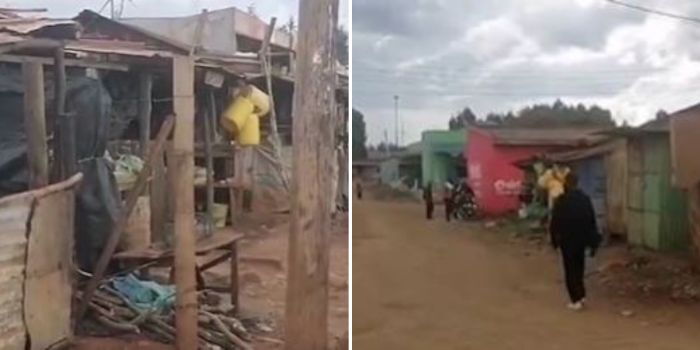Nairobi Senator Edwin Sifuna has issued a strong warning: students in Kenya are being forced to move out of campus hostels and live in dangerous slums. Why? Because university hostel fees are going up too fast.
Speaking in the Senate on Thursday, July 24, Sifuna said that many students cannot afford to stay in hostels inside universities. As a result, they are moving to unsafe places where rent is cheaper, often in slum areas around major towns and cities.
The senator said that the new hostel prices are simply too high. He blamed public universities for raising the fees without thinking about the poor students who are already struggling with the high cost of living.
“Students are being forced into slums because they cannot afford the new hostel rates,” Sifuna told fellow senators.
Sifuna asked the Senate’s Education Committee to look into the situation urgently. He wants them to investigate why universities are increasing hostel fees so much. He also wants to know if anyone is checking and regulating these prices.
His remarks come at a critical time. Universities are getting ready to receive first-year students who were placed through the Kenya Universities and Colleges Central Placement Service (KUCCPS).
This year, KUCCPS has placed 194,372 students into public universities across Kenya. Most of these students are expected to begin reporting to their respective campuses in August.
However, many of these institutions don’t have enough hostels. For example, the University of Nairobi (UoN) has just 10,000 hostel beds but over 47,000 students. That means nearly 80% of students must find places to live outside campus.
And living outside is not always safe or affordable.
At most universities, students must apply online for hostel space. Priority is usually given to government-sponsored students. Those who pay their own fees, the self-sponsored, often miss out and are left looking for housing on their own.
For a long time, hostels in public universities were affordable. But that is now changing. Some students say the price hikes are unfair.
At the University of Nairobi, students have complained that hostel fees jumped from Ksh 6,000 in 2021 to Ksh 43,000 now. This sudden increase has sparked anger among students, and some have even threatened to protest.
Sifuna believes such high costs are locking out many bright young people who want to study but cannot afford to live near their schools.
“This is no longer just about money. It’s about the safety, health, and future of our young people,” Sifuna said.
Meanwhile, the Ministry of Education has also raised concerns. Many public universities are now struggling with serious financial problems. Some cannot even pay their workers on time.
With little money coming in, universities say they are being forced to raise fees, not just for tuition, but also for accommodation and other services.
But Sifuna says that increasing hostel fees is not the answer. He believes it is only making things worse for students who are already suffering.
The senator wants the government to step in. He is asking for transparency, universities should clearly explain why they are raising hostel fees and how that money is being used.
He also wants policies that protect poor and vulnerable students from being left behind. “We cannot allow a situation where our brightest students are forced to choose between education and safety,” Sifuna added.
The crisis also exposes a bigger problem: Kenya’s growing population of university students is too large for the current campus infrastructure.
More students are being admitted every year, but not enough hostels are being built. This creates a dangerous gap, where thousands of students are left to fend for themselves in risky neighborhoods.
Experts say if the government and universities don’t act quickly, more students will end up in slums, exposed to crime, poor sanitation, and exploitation.
Sifuna’s warning is a wake-up call. It reminds the nation that investing in education is not just about books and teachers, it’s also about housing, security, and dignity.
As universities open their doors to new students, many are wondering: will these young people find a safe place to sleep?
For now, thousands of families are watching, worrying, and waiting for answers.






